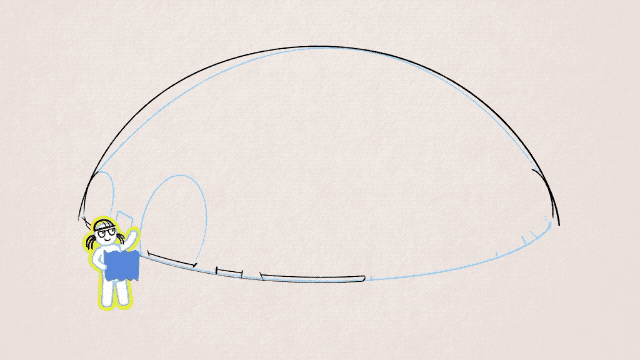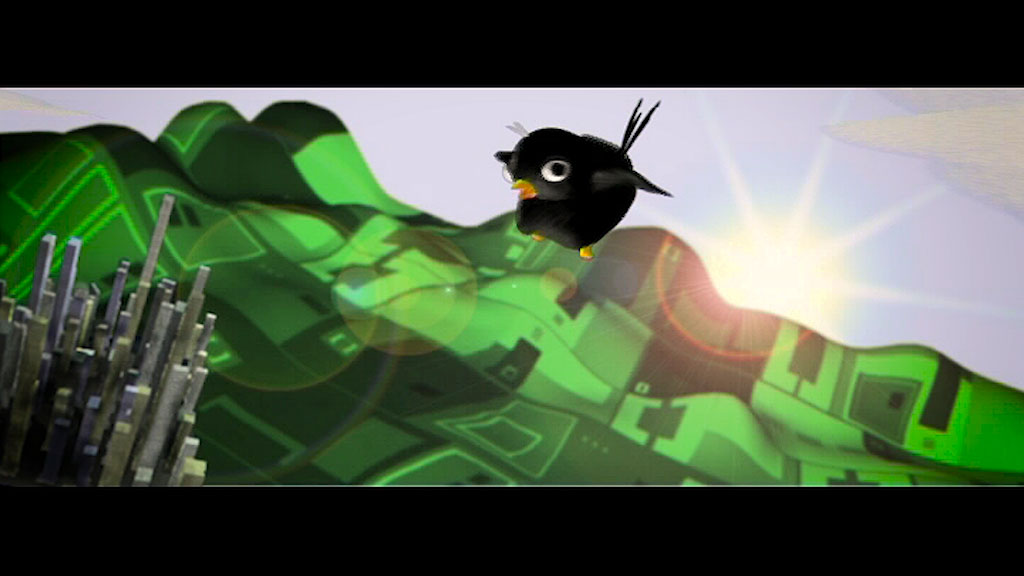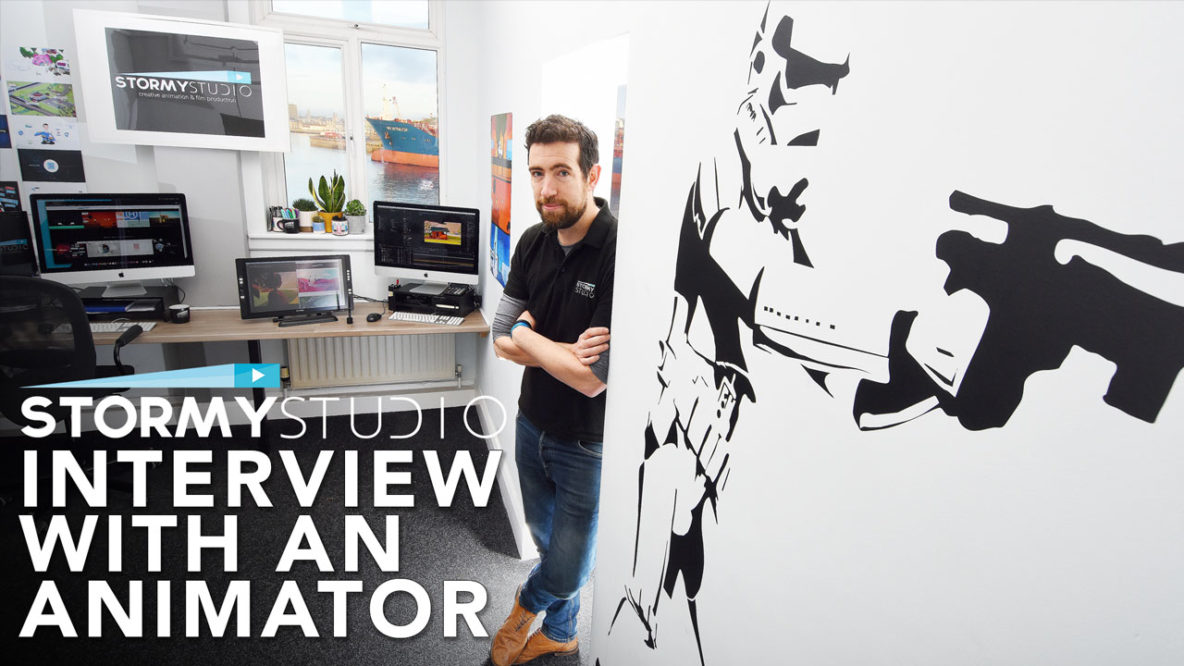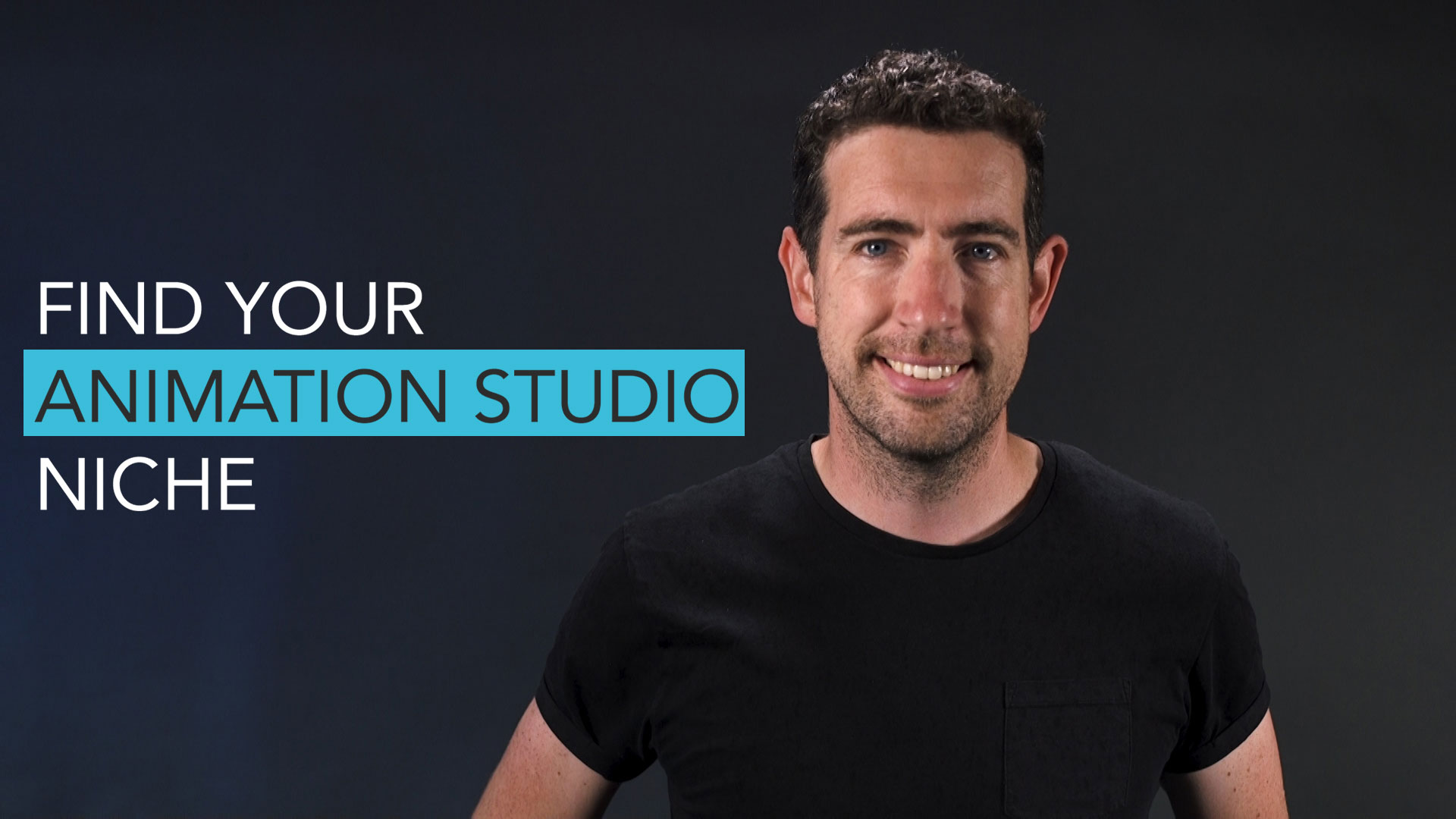*As well as the text questions answered below. Here's a new video Interview with animator & animation studio founder Jon Draper.
Interview with an animator, Jon Draper from Stormy Studio
This interview with an animator was conducted for a careers site. With an aim of providing those seeking a career in animation some useful insight and a working animators point of view. We're pleased to be able to share it here too, complimenting our recent blog posts on starting an animation career and starting your own animation studio.
So without further ado...
Since 2013 Stormy Studio has been building up a portfolio of high quality and creative business animation. Over the past years, they’ve built up a diverse array of business relationships with high-profile clients like Moodys, UK Power Networks, The Internet Society and Charlotte Church.
We recently caught up with Jon, who was keen to volunteer and be part of our animator interview series. Jon happily shares his thoughts around his own journey into the animation industry and the highs and lows of setting up a profitable animation studio. This interview with an animator looks to provide advice for aspiring animators and animation entrepreneurs.
What is your firm's focus within animation and what led your firm to have such a focus?
Our studios main focus is on producing high quality, bespoke content for the business to business market. Producing corporate animation serves us well and helps ensure we stay afloat and remain profitable.
Also despite the term ‘corporate’ most projects allow myself and our small team to bring creative ideas and techniques to the table.
As a business decision it is partly intentional as I believe corporate animation production ensures consistent work and increased chance of repeat business. We have also been unintentionally shaped by the jobs worked on over the years.
For example we successfully successfully pitched for a series of health and safety videos for an energy company back in 2014. Which in turn lead to renewable energy animations and further HSE animations. As a result of both industry recommendations and our online portfolio, 5 years later we now produce more videos on these two subjects than anything else.
Fill in the blank: The future of animation is _________.
The future of animation is going to see a bigger divide in terms of production techniques for pricing in business animation.
I think smaller businesses we’ll make use of new cloud technology that will automate a lot of ‘lower budget’ business animation. The services are already here to some degree. So those needing animated content for social media campaigns or a presentation will be making more content themselves. Just fill in some text boxes, uploading their brand guidelines and they’ll have their motion graphics video in seconds.
Plus in the future, I think tools like Adobe Character animator, will become ever more intuitive and automated reducing the need for fully trained animators to be involved.
However, as a result, I think there will be more of a calling for higher quality bespoke content, with studios like ours and many others raising the bar on what can be produced for medium budgets. So I think trained animators will still be required, plus traditional frame-by-frame animation skills will be called upon more to help work stand out from the crowd.

The future of animation
"...I think there will be more of a calling for higher quality bespoke content"
What are the best and worst aspects of working in the animation field?
The best parts are that there are so many varied aspects to work on and build a speciality in. Of course, animating a character or engaging graphic sequence is rewarding in itself, though all the other disciplines are equally if not more rewarding i.e illustration, design, storyboarding, acting, sound design, 3D modelling, visual FX, editing… the list goes on.
The worst aspects for me, are probably the near-constant project deadlines. Most projects involve striking that balance between the creative ideas you’re keen to bring to life and those of your client.
Our uk animation studio showreel. Note its length is just 1.03
The pros and cons of an animation career
"...so many varied aspects to work on and build a speciality in."
Among your firm's achievements, which one(s) are you the proudest of?
Making it past our fifth year in business was a massive one for me. I’d read a stat early on that 50% of businesses fail by their fifth year, so passing that point successfully with staff, growth plans, productive marketing and a solid client base was a great feeling. Though admittedly, I didn’t realise we’d passed that point till 3 days later.
What skills/qualities does your firm seek out when hiring new employees?
We’re always on the lookout for those with fantastic Adobe After Effects skills, a general understanding of the rest of the Adobe Creative Suite and one 3D package (ideally Cinema 4D). Character rigging, animation and motion graphics experience is essential.
Lastly, whilst technical software skills are needed, a talent for graphic design and traditional illustration is also key.
As far as ‘qualities’ go, we’d look for someone who has a passion for animation, design and film. Someone that strives to produce exciting work and an eagerness to learn new skills and problem solve.

Years after first writing this blog post and sharing related videos on Youtube. I went on to create an award-winning online course, jobs board and other resources to help you plan and launch your own viable animation studio.
Find out more via the link below.

What particular schools, if any, does your firm recruit new hires from? If none, where do you recruit new hires?
We don’t currently favour anyone school over another.
Most of recruitment is done on an ad-hoc basis, we’ll put an ad up on our own animation studio website and various online portals. Or someone will reach out to our studio via phone or email, if they sound especially good we’ll save their details and potentially get in touch when we need to scale up the team. Or someone gets in touch at just the right time and we’ll get them in for a chat in person or on the phone/skype to discuss a project.
What advice would you give to aspiring animators?
Build up your skills as much as possible both in terms of technical software skills and your ability to draw. Draw every day, even if 3D animation is where you’re thinking of moving toward.
If after you’ve graduated from a school or built up a good level of skills, ensure your showreel or portfolio is showing your very best work (remove the bad stuff). Plus keep working to improve everything that little bit more.
Also get constructive criticism on your showreel (i.e. post it on Reddit) and don’t make your showreel long than 85 seconds. 60 second is better still.
Plus remain persistent when reaching out to studios, you will eventually build up that much-needed experience to enable you to apply for junior animation roles.

What were your most challenging projects, and why?
My most challenging project (and arguably most rewarding) was one that involved me being the Director on a film shoot for which we were also producing various hand-drawn animations. These were to be comped into the footage. I’d been building up my cinematic film skills almost as a hobby outside of studio work for 2 years prior to this, but suddenly getting paid for filming upped the pressure a notch.
It was one of those rare ‘unicorn’ projects, where a client had a good budget, liked my initial creative pitch and left us to go away and produce the whole thing. No storyboard review, no casting review… just go and make it and show me the video at the end.
Weirdly, having no chance for review at preproduction stages made it all a lot more stressful. Also knowing that in many ways this was one of those rare dream projects, I wanted to ensure it delivered.
Filming over 3 days with child actors and a new small crew was ‘interesting’ to say the least. Plus the pressure of trusting you’ve actually got the shots needed is quite different to animation.
Once into the motion tracking and animation phase it was great and we could just focus on making sure it looked as good as possible.
Which, fortunately, by the end it did. Our client loved it, we played around with some opening text and that was it, all wrapped up. It’s since gone on to be one of the most referenced videos on our site and lead to various other interesting projects.

What kind of education did it take to get you where you are today?
I loved drawing as a child. After A-Levels (In Information Technology and Business Studies), I studied for a BTEC in Art and Design at the Kent Institute of Art and Design (KIAD). Then a BA (Hons) in Illustration and Animation at Southampton Solent University. Where my degree film went on to win a Royal Television Award.

Still from Jons Student film 'Tales of Heavens Waiting Room'
What animation software packages does your firm prefer to use?
+ Which one would you recommend to beginners?
We use Adobe After Effects (Ae) a lot and it certainly plays a role in every project. We also use a good variety of 3rd party plugins for Ae like Element 3D, Plexus and Newton. Plus rig characters using DUIK and Rubberhose.
For 3D software we use Cinema 4D. Plus some regular freelancers work with 3DS Max. Though for some things Blender is more than capable, especially if making models that will be animated inside of After Effects using Element 3D
We’re about to invest in a few licenses for TV Paint, as I’m keen to introduce more elements of traditional frame-by-frame animation into our work.
Lastly a lot of of design work for characters and assets is done using Adobe Illustrator. Plus the rest of the creative suite comes into play throughout a production, (Photoshop, Premiere, Audition). Plus Adobe Indesign for our creative treatments.
For storyboards we’re now regular users of Boords.com, the cloud based storyboarding software has made the process of building and rearranging boards far more efficient.
For beginners, I’d recommend student licenses for the Adobe Creative Suite and spend time mastering After Effects. It’s a huge program with endless potential but three are countless free tutorials out there to introduce to the package.
For 3D, it’s a little trickier, all packages are very good and would teach you the key 3D skills. Including Blender which is 100% free.
However, most industry-leading 3D packages offer free student licences so depending on your target industry I’d recommend going with one of those. For example, if interested in working on Film CGI look at Maya, for Special FX look at Houdini, Architecture and Games go with 3DS Max and for TV and Marketing videos go with Cinema 4D (Which integrates with Ae and is well-honed for motion graphics work too). That said they’d all serve the various industries well, but some have a certain reputation and are used more in those particular fields.
Could you share with us your best story about working in the animation industry?
Whilst there have been many great points, I’ve met lots of inspiring and talented people along the way. One project stands out in particular. I was working for a production company in London. They had me fly out from the UK with a 10 person crew to Cape Town in South Africa. I was working as the lead animator (and video editor) on the project due in 8 days time. I got set up in the basement of what is arguably the plushest hotel in Africa.
There was a lot of banter between the hard-working, sarcastic, crew and the project itself had some interesting creative challenges. I was able to get out from behind the screen one morning and do some filming on Table mountain. Which was a great bonus to a pretty relentless week. The animation and video editing work involved some long days 12+ hour days. Though there was still time for a few beers most evenings with the rest of the crew.
The final day came and I sat in this taxi, being driven across the city at breakneck speed. Sitting next to a nervous producer/director as I finished rendering animations and piecing together an edit. All ready to be played out at the World Cup stadium to an awaiting audience some 15 minutes later.
We made it… only just… everyone had worked their socks off and the results were fantastic.
Seeing the video played out in the stadium to the audience after 8 long was incredible and gave us all a renewed buzz.
Has the trend of outsourcing animation overseas affected your firm, if yes, how have you dealt with it or compensated for it?
Whilst our studio only formed 6 years ago. From the outset, the plan was to produce a high quality of work for medium and larger budget projects as I was aware a lot of smaller projects were being very competitively priced on various freelancer sites. There has been a definite race to the bottom on price, with overseas firms benefiting. So for us, we’ve tried to position our studio as one that provides a bespoke service and a higher level of quality to differentiate us from lower-cost firms.
Do you think that there is an increasing or decreasing demand for animators overall? Why?
I think that whilst there are more animation jobs in general. With the successful growth across different areas such as games, tv, film, architecture, web and marketing video. Plus to some extent VR industries. There seem to be a lot of students graduating on animation related courses. Which whilst fantastic, I’m not sure if there is enough demand to fill the supply.
Which I don’t think is terrible news for all, it just means if graduating that you’ll need to work harder (and be better) to stand out from the crowd. Plus if looking to study animation, ensure you pick courses with the best routes into the animation industry or those that teach skills and software that are in demand.
That's a wrap...
I hope you enjoyed our studios interview wirth an animator, and our own studio founder.
If you're interested in a career in animation please check out our other blog articles on gaining animation experience and when ready setting up an animation studio of your own.
After lots of pondering... our studio launched an online course, jobs board and community to help you plan and start your own animation studio.




